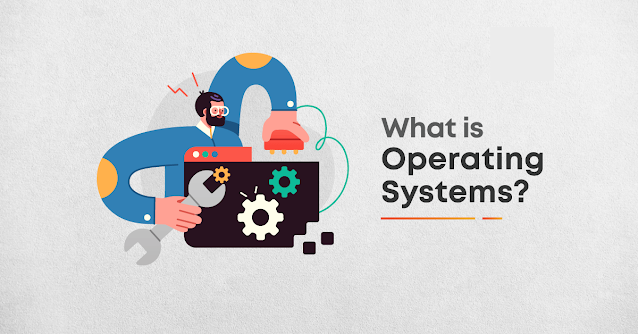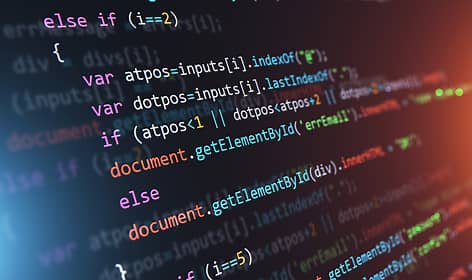What is Operating System (OS) and Its Functions?
Function of Operating System
The Operating System is a communication interface (interface) between the user's computer and its hardware. An operating system provides a platform for a user to execute programs in an efficient and convenient way.
An operating system is software that manages computer hardware allocation. To ensure that the computer system works properly, the coordination of hardware must be done in a way that prevents user programs from interfering.
Example: We request or give our orders to the Operating System in the same way a boss would. The Operating System's primary goal is to make the computer environment easier to use. It also has the secondary goal of maximizing the use of resources.
What is an Operating System?
An operating system is a program that executes application programs. It acts as a communication bridge (interface), between the user's computer and the hardware.
An operating system's main task is to allocate resources and services. This includes the allocation of memory, devices and processors, as well as information. These programs include traffic controllers, schedulers, memory management modules, I/O programmes, and file systems.
The following are important functions of an Operating System:
Security
Password protection is used by the operating system to protect user data, and other similar techniques. It also protects against unauthorized access to programs or user data.
System performance control -
To improve system performance, monitors the overall health of the system. To get a complete picture of the health of the system, it records the time taken to respond to service requests. This information can be used to improve system performance and provide important information that can be used to troubleshoot issues.
Accounting for jobs -
Operating system Tracks time and resources used by different tasks and users. This information can be used for resource tracking for a specific user or group.
Error detecting aids -
The operating system continuously monitors the system in order to detect and prevent any errors.
Collaboration between software users and other software
Operating systems coordinate and assign interpreters and compilers to various users of the computer system.
Memory Management -
The Operating System manages the Primary Memory and Main Memory. The main memory is a large array or words of bytes and words, each of which is assigned an address. Main memory is fast storage that can be accessed by the CPU. To execute a program, it must first be loaded into main memory. The following tasks are performed by an Operating System to manage memory:
It tracks primary memory, i.e. which bytes of memory have been used by which user programs. The memory addresses that have been allocated and those that are yet to be used. Multi programming allows the OS to decide the order in which processes have access to memory and how long. It allocates memory to a process when it requests it, and deallocates memory when the process is finished or performing an I/O operation.
Processor Management
The OS determines which processes can access the processor and how long each process has to run in a multi-program environment. This is known as process scheduling. The following activities are performed by an Operating System for processor management.
Maintains track of the status and activities of processes. Traffic controller is the program that performs this task. Allocates the processor CPU to a process. When a process is not needed anymore, de-allocates the processor.
Device Management -
An OS manages device communication through their drivers. These activities are performed by the OS for device management. It keeps track of all devices that are connected to the system. Designates the program responsible for each device, known as the Input/ Output Controller. Determines which process has access to a particular device and how long. Assigns devices in an efficient and effective manner. Devices can be sold when they are not needed.
File Management -
For efficient navigation and ease of use, a file system can be organized into directories. These directories can contain other directories or files. The following file management activities are performed by an Operating System. The file system is a collection of all the information that an Operating System uses to manage files.
Operating System provides services that are specific to the computer system.
The Operating System offers certain services to users, which can be listed as follows:
Program Execution - The Operating System is responsible to execute all types of programs, whether they are user programs or system program. The Operating System makes use of various resources to ensure efficient operation of all functionalities.
Handling input/output operations: The Operating System handles all types of inputs. The Operating System handles all types of interfacing in the most efficient manner.
Operating System, for example, is responsible for data transfer between all peripheral devices.
Manipulation File System: This is where the Operating System makes all decisions about how files or data are stored. The Operating System determines how data should be stored and manipulated.
Handling and Error Detection: The Operating System is responsible to detect any errors or bugs that may occur during any task. Sometimes, the well-secure OS acts as a countermeasure to prevent any kind of breach to your Computer System from external sources and possibly handle them.
Resource Allocation: The Operating System determines who and how to use each resource. The Operating System makes all the decisions.
Accounting: The Operating System keeps track of all functionalities occurring in the computer system at any given time. The Operating System records all details, such as errors and their types.
Information and Resource Protection: It is responsible for protecting all information and resources on the machine. Any attempt to block any type of data or information from an external resource must be stopped by the Operating System.



Comments
Post a Comment